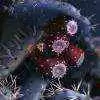-
Welcome to Celiac.com!
You have found your celiac tribe! Join us and ask questions in our forum, share your story, and connect with others.
-
Celiac.com Sponsor (A1):
Celiac.com Sponsor (A1-M):
-
Get Celiac.com Updates:Support Our Content
So, This Week Will Be Interesting...
-
Get Celiac.com Updates:Support Celiac.com:
-
Celiac.com Sponsor (A17):
Celiac.com Sponsor (A17):
Celiac.com Sponsors (A17-M):
-
Recent Activity
-
- Bebygirl01 replied to Bebygirl01's topic in Related Issues & Disorders2
How many people here are aware that there are 9 types of gluten that Celiacs should be aware of?
Ortiz-Sánchez JP, Cabrera-Chávez F, de la Barca AM. Maize prolamins could induce a gluten-like cellular immune response in some celiac disease patients. Nutrients. 2013 Oct 21;5(10):4174-83. doi: 10.3390/nu5104174. PMID: 24152750; PMCID: PMC3820067. AND SEE: Oats Intolerance in Celiac Disease. PLoS Med. 2004 Oct;1(1):e23. doi: 10.1371/journal.p... -
- trents replied to Bebygirl01's topic in Related Issues & Disorders2
How many people here are aware that there are 9 types of gluten that Celiacs should be aware of?
@Bebygirl01, if you want to play word games with the term, "gluten", we can do that. The proteins you list in these other cereal grains besides wheat, barley and rye are somewhat different from that found in wheat, barley and rye and, technically speaking, are not "gluten". Technically speaking, "gluten" should only be applied to a particular protein found... -
- Bebygirl01 posted a topic in Related Issues & Disorders2
How many people here are aware that there are 9 types of gluten that Celiacs should be aware of?
On my Celiac journey and discovered I was also reacting to other types of gluten. The FDA in it's finite wisdom only classifies 'wheat, barley and rye' as the gluten's to be considered when a company tests for and stamps their products as gluten free. I am curious as to how many of you are aware of the other types of glutens? And another question to those... -
- Scott Adams replied to Dawn Meyers's topic in Related Issues & Disorders21
Vaccines
I just want to mention again that IF thimerosal is used in a flu vaccine the amount of ethylmercury in a single vaccine dose would be extremely small, typically around 25 micrograms (µg) or less. For context, this is much lower than the levels of methylmercury found in some seafood. Ethylmercury is metabolized and excreted from the body much faster than ... -
- knitty kitty replied to Dawn Meyers's topic in Related Issues & Disorders21
Vaccines
If you have poor reactions to vaccines, preservatives, sugar alcohols and metals, you may be deficient in Thiamine Vitamin B1. Thiamine is needed in the immune response and production of antibodies. Thiamine can be depleted by vaccines if you are already low to begin with due to the Malabsorption of Celiac Disease. Thiamine can be destroyed by sulfide...
-






Recommended Posts
Archived
This topic is now archived and is closed to further replies.